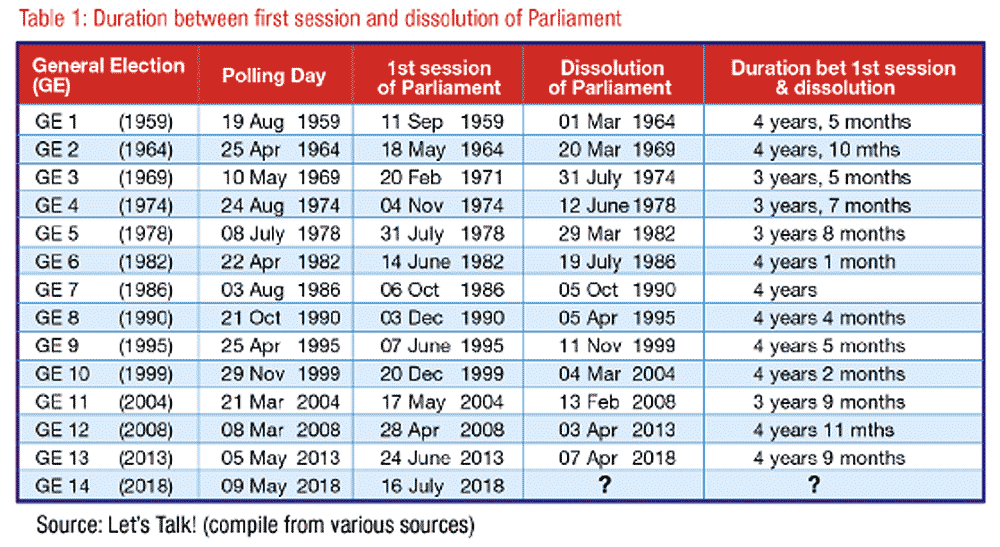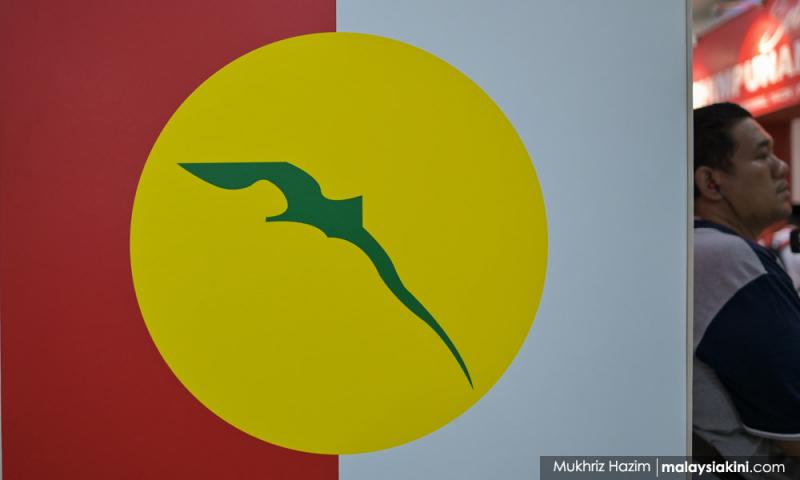LETTER | 'Derhaka' for holding GE15 this year is a stretch too far
LETTER | On Oct 1, DAP secretary-general Anthony Loke said Umno’s refusal to budge from holding polls this year showed that it was deliberately ignoring the Federal Constitution, which provides the Yang di-Pertuan Agong with discretionary powers with regards to the dissolution of Parliament.
“Isn’t this derhaka against the institution of the Yang di-Pertuan Agong?” the Seremban MP asked in a statement, using the Malay word for rebellion or treason.
Citing Article 40(2)(b) of the Federal Constitution, Loke said the clause clearly provides the Yang di-Pertuan Agong the power to disallow a request to dissolve Parliament.
No one is actually disputing this constitutional provision mentioned by Loke, thus it is very strange why he brought up this issue.
He was actually responding to news reports that Umno supreme council has set a date for the 15th general election (GE15) and that its vice-president and Prime Minister Ismail Sabri Yaakob will seek an audience with the Yang di-Pertuan Agong to seek the dissolution of Parliament soon.
To Loke, the Umno supreme council was setting a condition for the king and ignored the monarch’s constitutional discretionary powers.
This is really stretching things too far in attributing Umno’s move as derhaka when it is just a simple matter of Umno wanting a consensus among its top guns on when to hold GE15. And because the dissolution of Parliament is a must before an election can be held, the prime minister will have to seek an audience with the king to get his assent to dissolve the legislature.
In any parliamentary democracy, it is the incumbent prime minister who holds the first key to the dissolution of Parliament in the form of having an audience with the king to advise His Majesty to dissolve Parliament.
No one is given the right to share this constitutional privilege of the incumbent PM. The Constitution also provides for the king then to either give his assent or reject it.
There is nothing unconstitutional or derhaka in this. Past dissolutions of Parliament in Malaysia always began with this first step.
Loke then went on to say that it had never happened in the history of the country that an open statement regarding the dissolution of Parliament was issued before the prime minister received the approval of the Yang di-Pertuan Agong.
Well, he should study properly the statement made by Umno secretary-general Ahmad Maslan on Sep 30 to the media after a supreme council meeting was held.
The announcement made by Ahmad is not about the exact date of when Parliament will be dissolved or when GE15 will be held.
That can only happen after the king has given his assent, and it is not for Ahmad to announce it even if assent is given. And he didn’t announce it.
All Ahmad said was Malaysia will have GE15 once PM Ismail Sabri meets the Yang di-Pertuan Agong to dissolve the Dewan Rakyat.
“The dissolution of Parliament will be made soon and the general election will be held this year. The prime minister will present the date of the dissolution to the king in the near future,” he said.
“This is in line with Umno’s stand that the mandate should be returned to the people to establish a stable government following the fall of the Pakatan Harapan government due to its own internal crisis in 2020.”
So why accuse Umno of being derhaka?
If we were to use past precedents, once Parliament has entered its fourth year from the date of its first sitting, the general election was held within the one year left of Parliament’s existence.
There were cases where a GE was held after three years had passed from Parliament’s first sitting but this is rare. (See Table 1 below).

Of course, it is totally a different matter if Loke feels holding the election this year (slightly less than three months now to a new year) is not a good idea because of the monsoon season, where the threat of a big flood like last year may occur.
If this is the case, not only Loke, but also some members of the cabinet and quite a strong segment of the rakyat do not want elections to be held this year for precisely the same reason.
Moreover based, on past precedent, a GE was never held in October, November or December except in 1990 and 1999 when then prime minister Dr Mahathir Mohamad called for GE8 and GE10 on Oct 21 and Nov 29 respectively (see Table 1 above).
Mahathir had since explained that doing the same this year would put lives at stake due to the impact of climate change.
“In the past, it was fine to hold an election at the end of the year. There were floods but it was not extraordinary. But if you hold (election) now, maybe the people will die because of floods,” the nonagenarian said on Sept 20.
In some countries that practise parliamentary democracy, a snap election would be called to capitalise on an unusual electoral opportunity or to decide a pressing issue, under circumstances when an election is not required by law or convention.
We now have less than a year – about nine months – to hold an election, so to describe an election held around this time as a snap election is a misnomer. It is a scheduled one whether it is held this year or next year.
Umno has been clamouring for a snap election since last year for two reasons: it saw an electoral opportunity of winning big, judging from its victories in the Sabah, Sarawak, Malacca, and Johor state elections, and also the party believes a snap election will return a stable government into office.
From the perspective of political science, this is perfectly alright and there is nothing indecent in it. Any political party in Umno’s position will do the same.
Moreover, the stability that Umno is pushing for via holding elections this year is becoming more relevant, as the opposition is already mulling the idea of not voting for Budget 2023, which will only cause hardship to the rakyat.
In fact, the potential for instability is already there as the opposition’s pledge to avoid triggering a GE before July this year expired on July 31 with the political memorandum of understanding between Pakatan Harapan and the government.
Furthermore, this political instability amidst the geopolitical uncertainties brought about by the Ukraine war and the global economic uncertainties caused by interest rate hikes by the US will only get worse.
So Umno is right in wanting to eliminate this instability by holding GE15 as soon as possible within the one year of Parliament’s existence left, which has now become nine months.
The only reason as mentioned earlier why it is not conducive to holding GE15 this year is the threat of a big flood due to climate change.
But knowing a problem is already half the solution. So in the event if GE15 is held this year, the government must double up its efforts to mitigate the worst effects of the big flood.
You can’t avoid floods – big or small – especially during the monsoon season but you can certainly mitigate the harmful effects of a big flood on lives and property.
And the nature of climate change is such that extreme weather will happen regularly but unpredictably. The worst flood that happened in Baling recently occurred outside the coming monsoon season, so this is what unpredictability in climate change means.
Most weather experts said the best time to hold GE15 is from February or March onwards, but can they guarantee with the unpredictable nature of climate change, there won’t be big floods after February or March?
In the event GE15 is called this year and assuming on polling day there is a big flood, an emergency situation can always be declared and polling day postponed to a later date.
There are compelling reasons for GE15 to be held this year, and at the same time, there are also equally compelling reasons for it to be held next year.
Under such circumstances, it doesn’t really matter whether the election is held this year or next, just let the PM decide when he wants to seek an audience with the king on the dissolution of Parliament, and let the king decide on whether to give his assent or not.
Whatever the decision, the rakyat should and must accept it.
The views expressed here are those of the author/contributor and do not necessarily represent the views of Malaysiakini.
RM12.50 / month
- Unlimited access to award-winning journalism
- Comment and share your opinions on all our articles
- Gift interesting stories to your friends
- Tax deductable
